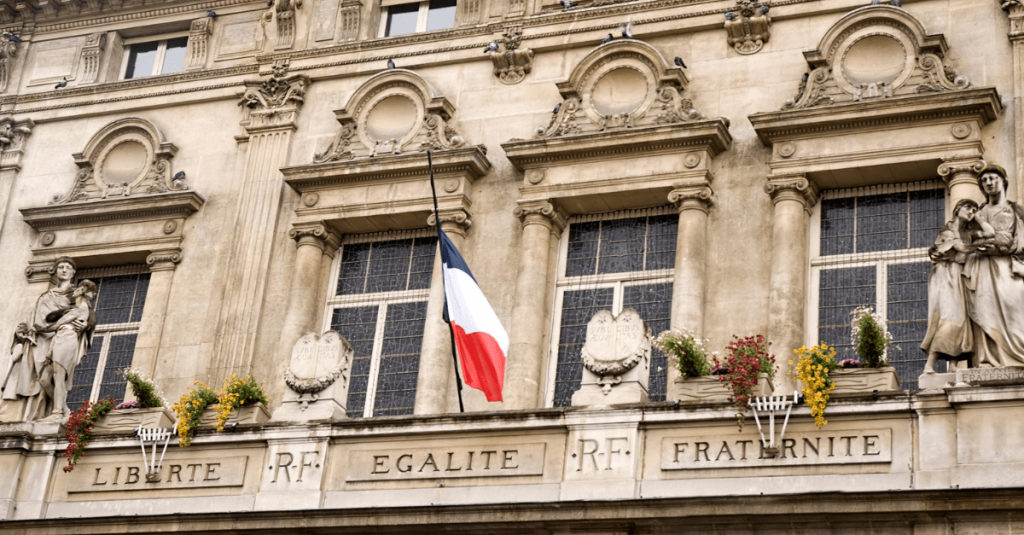French President Emmanuel Macron has faced criticism from opposition for acting in a way, which has been interpreted as violating the principle of secularism.
However, what does it really mean for a country to be ‘secular’ and can secularism be interpreted in multiple ways?
What did Macron do?
On Thursday 7th December 2023, Macron was awarded the Lord Jacobovits Prize for his efforts against anti-semitism at his Élysée palace, the French President’s official residence. This day also happened to be the first night of Hanukkah, a Jewish festival reaffirming Jewish values and commenting the rededication of the Second Temple of Jerusalem. Throughout this festival, candles on the Jewish menorah are lit each night for 8 days to symbolise the number of days that the oil in in the Temple miraculously burned for.
Soon after Macron was awarded the Lord Jacobovits Prize, a video was posted on social media of France’s Chief Rabbi Haim Korsia lighting the first Hanukkah candle at the Élysée whilst Macron observed, which has sparked some serious controversy since this event seems to conflict with the French law on secularism.
What does the French Law say?
Secularism was enshrined in the French law in the 1905 Separate of the Church and State, which legally enforces the separation of state from religion. According to this law, religious ideology and institutions must maintain distance from the state and vice versa, meaning neither religion and religious institutions cannot interfere with the state, nor can any religion or religious practice be legally enforced. Under this law, all citizens of France have the right to freedom of conscience and belief to the extent that the manifestation of such conscience and beliefs ‘does not disturb the peace’.
In addition to this separation, public French bodies must be neutral with respect to religious matters. As a result of this, religious experience has been restricted in public through various laws such as the 2003 Stasi Commission, which forbids ostentatious religious symbols in schools such as the Jewish Kippur and Islamic Hijab. This means religious expression in France is restricted to a certain extent albeit the French law on secularism and values of Liberté, Égalité, Fraternité, give people the right to freedom of religious expression – the degree of freedom is however, something which is up for debate and has and continues to be an issue in French politics.
Why the controversy?
French Secularism = Separation of State and Religion
The act lighting of the first Hanukkah candle at the Élysée, the home of the French President, by France’s Chief Rabbi directly conflicts with the 1905 law on secularism which legally enshrines the separation of religion and state in France.
This is an instance of religion and state coming into direct contact with each other and some may say, crossing boundaries, violating the 1905 law enforcing the separation of state and religion.
Unlawful Bias?
Given other French laws restricting religious expression – in particular the 2004 Anti-mask law, colloquially known as the ‘burqa ban’ – it’s no wonder that there were more than a few raised eyebrows when the first night of Hanukkah 2024 ‘begun’ in the Élysée.
Based on existing French law, such as the Anti-mask law, it seems highly unlikely performance of any Islamic religious ceremony would be permitted and so, this instance may also be interpreted as Macron showing bias towards Judaism, conflicting with the expectation that public French bodies be neutral towards religious matters.
Would this have been allowed by Macron, if it were a different religion?
Different Interpretations of Secularism
It is interesting to consider this understanding of secularism as separation of religion from the state and vice versa as just one interpretation or manifestation of secularism. By this I mean that secularism can be and is interpreted in multiple ways.
Typically in the western world, secularism is conceived as the separation of the state from religion (how secularism is embodied in French law). Meanwhile, in India, secularism is defined in the constitution as the equal tolerance and respect of all religions, as opposed to religion and the state’s separation. This particularly understanding of secularism means no religion can be favoured or discriminated against and the Indian state has an obligation to protect minority groups and discourage fundamentalism. Similarly, in France no particular religion can shown any bias or discriminated against. However, it may be argued that this is due to the intention to draw a line between religion and state and for the state to not have any involvement in religious affairs, whilst in India, the state plays an active role in facilitating peaceful co-existence of different religions.
Watch this space for another blog comparing secularism in France and India…
Food for Thought
- Was it necessary to perform a religious ceremony in the Élysée for Macron to show his acceptance of France’s Jewish community?
- Would it Macron have allowed this to happen if it had been a different religion’s tradition e.g., Islam?
References
Bhargava, R. (2002) ‘What is Indian Secularism and What Is It For?’ in India Review, 1(1), pp.1-32. Available at: https://www.tandfonline.com/doi/abs/10.1080/14736480208404618
Observatoire de la laïcité (2016) Declaration for Laïcité. Available at: https://www.info.gouv.fr/sites/default/files/contenu/piece-jointe/2016/12/declaration_pour_la_laicite_anglais_americain.pdf
